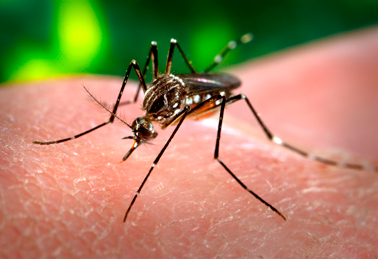- Dr Francisco Zamora, an infectious disease specialist and professor at the School of Medicine of Universidad de Santiago, emphatically rejects the possibility of a dengue or Zika outbreak in mainland Chile, as the disease-carrying mosquito (aedes aegypti) lives only in tropical areas. After confirming 10 cases of dengue in Easter Island, the Chilean Health Authorities have taken a number of actions to prevent a major outbreak, like the careful waste handling and an information campaign among people in that island.
After confirming 10 cases of dengue in Easter Island, the Chilean health authorities have taken a number of actions to prevent a major outbreak, like the careful waste handling and an information campaign among people in that island.
The dengue and Zika carrying mosquito requires tropical environments for its proliferation; therefore, its presence in mainland Chile and a large scale outbreak of these diseases, even if there are citizens who got the virus abroad, are not possible, because “the infection is only caused by the mosquito bite,” Dr Zamora stresses.
“The mountains of the Andes provide an exceptional natural barrier to the possible spread of the aedes aegypti,” he adds.
In spite of this, the specialist believes that we have to be cautious, considering some studies conducted on Zika virus and its harmful effects on pregnant women, as some have delivered babies with hydrocephalus.
Although research results are not conclusive, Dr Zamora believes that recommendations given by the World Health Organization (WHO) and the Ministries of Health of the countries at risk are in accordance with the WHO’s mandate on protecting people.
Dr Zamora explains that the alarm on Zika virus in Brazil was caused by a study that relates babies born with hydrocephalus and women carrying the disease.
But he says that although the study results are not conclusive and the number of cases reported is not representative, “we have to be cautious and advise pregnant women not to travel to areas were this mosquito lives, even if there is not absolute certainty over its relation with hydrocephalus cases.”
Dengue fever
“Dengue fever is a disease caused by a virus borne by the aedes aegypti mosquito, the same vector in yellow fever, Zika fever and chikungunya,” Dr Zamora explains.
“This insect abounds in tropical areas and it has spread from north to south over Latin American countries like Mexico, Brazil, Paraguay and Uruguay, among others, and also in Easter Island, in our country. The mosquito is usually found in very humid environments and its bite causes fever, muscle and joint pain, and skin lesions,” he adds.
Those are the initial symptoms, but the disease development will depend on the patient, he says.
“Dengue fever has subsequent effects like hemorrhagic fever that, together with a temperature, can result in low levels of platelets and plasma and the consequent bleeding that can cause the patient’s death,” he says.
“People with dengue usually do not require special treatment and recover from it,” he adds.
The reason why health authorities are concerned is that, when infected by dengue, “people do not develop immunity to the virus, so, any subsequent disease can be severer and cause death,” he concludes.
Translated by Marcela Contreras
Photo: The aedes aegypti mosquito is vector in dengue fever, yellow fever, Zika y chikungunya.



